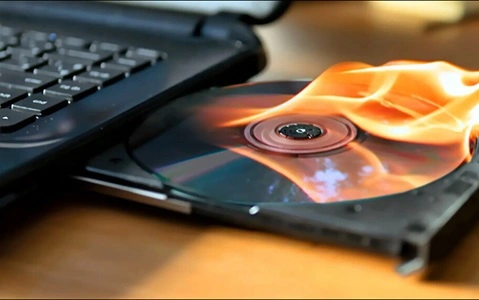Yes and no – burning a CD is legal under certain conditions, such as for personal use or backing up music you own, but it becomes illegal when it infringes on copyright laws. The legality of burning CDs depends on the source of the content, how the burned CD is used, and whether the original content was obtained legally. U.S. copyright law, specifically the Digital Millennium Copyright Act (DMCA), governs these practices.
Legal Context of Burning CDs
1. When Burning a CD is Legal
- For Personal Use: If you purchase music legally (e.g., from a CD or digital store), you are generally allowed to burn it onto a CD for personal use, such as creating a backup or a playlist for your car. This falls under the “fair use” doctrine.
- Content Without Copyright: Burning public domain or non-copyrighted content is entirely legal. For example, personal recordings or music distributed under a Creative Commons license can be freely burned to CDs.
- Educational or Research Use: Certain uses in educational or research settings may be protected under fair use, but these are limited and specific.
2. When Burning a CD is Illegal
- Distributing Copied CDs: Burning a CD and distributing it to others—whether for free or for profit—is a violation of copyright law.
- Copying for Commercial Use: Using burned CDs for resale or in a public setting, like a business or event, without proper licensing, infringes on copyright.
- Downloading Pirated Content: Burning content obtained illegally, such as pirated music or movies, to a CD is a violation of the DMCA.
Copyright and the DMCA
The Role of Copyright
Copyright laws protect the intellectual property of creators, giving them exclusive rights to distribute and profit from their work. Copying, reproducing, or distributing copyrighted material without permission infringes on these rights.
1. The DMCA’s Impact
- Enacted in 1998, the DMCA strengthened copyright protections in the digital age. It specifically prohibits circumventing digital rights management (DRM) software, which is often used to protect digital music and movies from unauthorized copying.
- If you bypass DRM to copy music or burn CDs, it is considered illegal, even for personal use.
Penalties for Illegal CD Burning
1. Civil Penalties
- Copyright holders can file lawsuits for damages. Penalties may range from $200 to $150,000 per infringement, depending on the severity and intent.
- Sharing or distributing burned CDs can lead to additional damages if done for commercial gain.
2. Criminal Penalties
- Serious cases, such as large-scale piracy operations, can result in criminal charges. Penalties may include fines and imprisonment of up to five years.
3. DMCA Violations
- Circumventing DRM or other copyright protections to burn CDs can lead to separate fines and penalties under the DMCA.
Best Practices for Burning CDs Legally
1. Purchase Music Legally
- Buy music or digital content from authorized sources like Apple Music, Amazon, or Google Play to ensure you have the rights to burn the material for personal use.
2. Use Content Licenses
- Check the licensing terms of digital content. Some platforms explicitly allow burning purchased music onto CDs for personal use.
3. Avoid Sharing or Selling
- Never distribute burned CDs, even among friends, unless the content is non-copyrighted or you have permission from the copyright holder.
4. Respect DRM Restrictions
- Do not use software or methods to bypass DRM protections, as this is explicitly prohibited under the DMCA.
Related FAQs
Q1. Can I burn a CD from my iTunes library?
Ans: Yes, if you purchased the music legally and the license permits burning for personal use. However, do not distribute or sell the burned CD.
Q2. Is it illegal to burn a CD for a friend?
Ans: Yes, sharing a burned CD with someone else violates copyright laws unless you have explicit permission from the copyright holder.
Q3. Can I burn a mix CD for my own use?
Ans: Yes, creating a mix CD for personal use is generally legal if you own the music legally.
Q4. Is it illegal to download music and burn it to a CD?
Ans: It depends on the source. Downloading and burning pirated content is illegal, while burning legally purchased content for personal use is typically allowed.
Q5. Are public domain works safe to burn?
Ans: Yes, you can legally burn CDs with content that is in the public domain or licensed under open-use agreements like Creative Commons.
Conclusion
Burning a CD is not inherently illegal, but it can violate copyright laws if done improperly. Personal use, such as creating a backup or mix CD from legally purchased music, is generally acceptable. However, distributing burned CDs, copying protected content, or bypassing DRM protections are all illegal under U.S. copyright law. Understanding the rules and limitations of copyright can help you stay compliant while enjoying your music legally.

